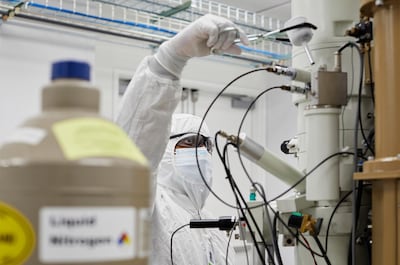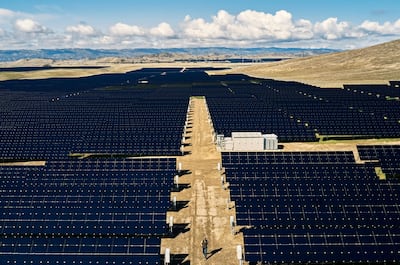Apple is committing $430 billion to the US economy over the next five years and aims to create 20,000 new jobs across the country, the company said on Monday.
The Cupertino-based company will work with more than 9,000 suppliers and firms in 50 states, supporting local job creation across dozens of sectors, including silicon engineering, 5G and manufacturing, it said in a statement.
"At this moment of recovery and rebuilding, Apple is doubling down on our commitment to US innovation and manufacturing with a generational investment reaching communities across all 50 states," said Tim Cook, Apple’s chief executive.
The Nasdaq-listed company, which has a market capitalisation of $2.25 trillion, said its contributions in the US over the past three years outpaced its original five-year goal of $350bn set in 2018 and is now raising its commitment by 20 per cent.
"We’re creating jobs in cutting-edge fields — from 5G to silicon engineering to artificial intelligence — investing in the next generation of innovative new businesses, and in all our work, building toward a greener and more equitable future," Mr Cook said.

Apple said it currently supports more than 2.7 million jobs across the US and is the largest taxpayer in the country, having paid almost $45bn in domestic corporate income taxes over the past five years.
The company said it is on track to meet its 2018 goal of creating 20,000 new jobs in the US in the next two years. With today’s commitment, it will create 20,000 additional jobs across the country by 2026.
Apple has expanded hiring targets across various locations in the country, such as Colorado, Massachusetts and Washington states, to meet the goals set for the next five years.
"Companies like Apple and Microsoft have made billions in their overseas operations … these companies are under strict pressure now as Joe Biden's administration is targeting them," Naeem Aslam, chief market analyst at broker Avatrade, said.
"From the investors’ perspective, they are comparing this announcement to the company’s last announcement in 2018 and the stock is up more than 200 per cent since then. So, an announcement like today is certainly positive news for Apple’s stock price."
Apple's share price is up more than 90 per cent over the past 12 months and closed at $134.32 on Friday. The stock price has soared about 473 per cent over the past five years.
Under its new investment plans, Apple plans to invest over $1bn in North Carolina and will begin construction on a new campus and an engineering hub in the Research Triangle area.
The investment will create at least 3,000 new jobs in machine learning, AI, software engineering and other cutting-edge fields.

The iPhone manufacturer, which launched its $5bn Advanced Manufacturing Fund in 2017, will also establish a $100 million fund to support schools and community initiatives in North Carolina. It will contribute over $110m in infrastructure spending to various counties in the state.

Last week, the company launched a range of products and services, including its long-awaited AirTag that helps customers track and locate their Apple items. It also rolled out a redesigned iMac desktop that uses in-house chips instead of those made by Intel as part of its strategy to reduce its reliance on other manufacturers and mitigate supply chain disruptions.

